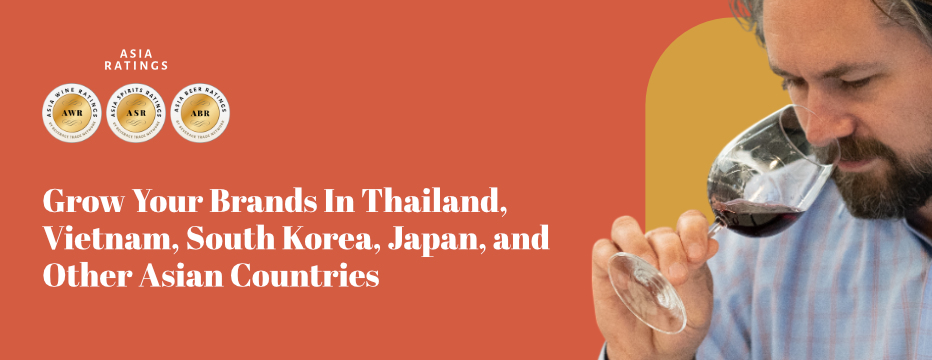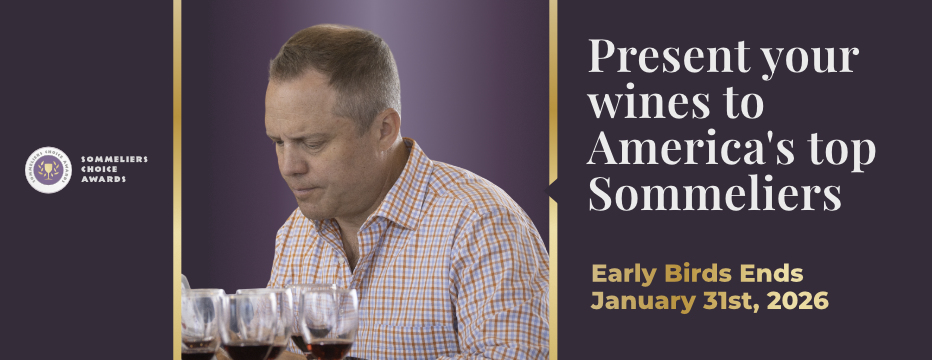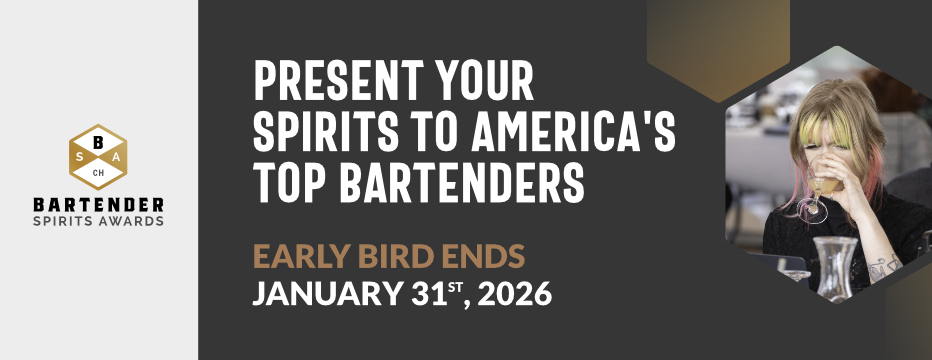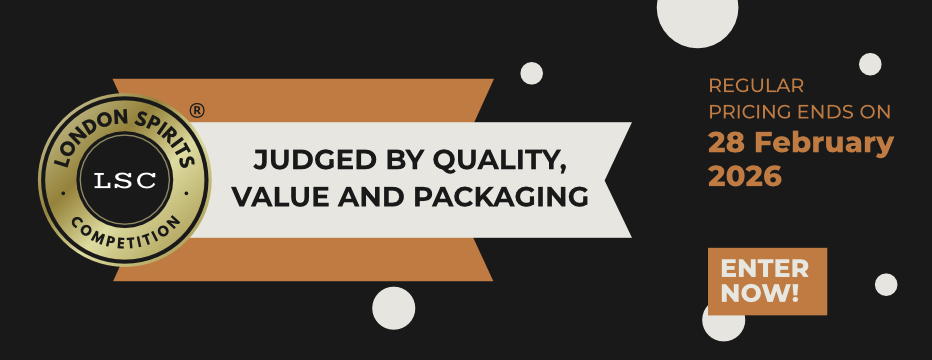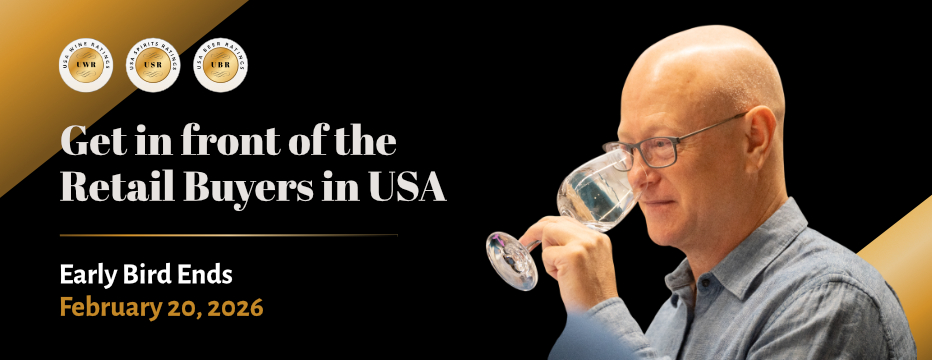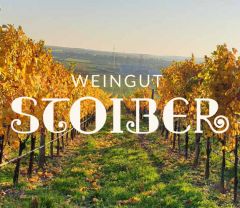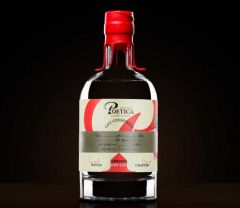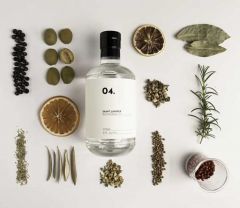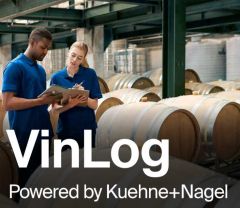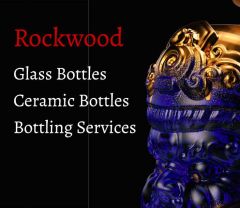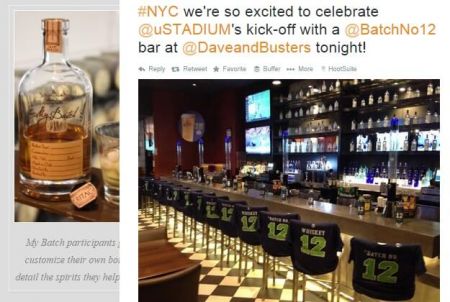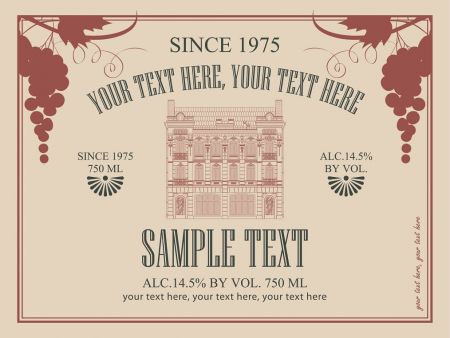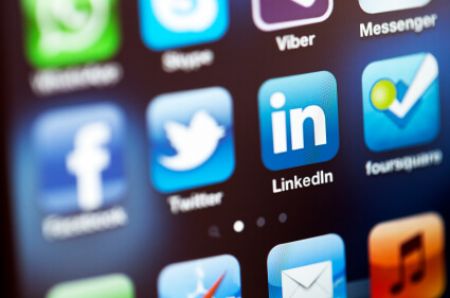Sommeliers Choice Awards 2025 Winners
Bridging the Gap: How Wines of Germany is Making Wine More Accessible
Inside Wines of Germany’s strategies for engaging new wine consumers
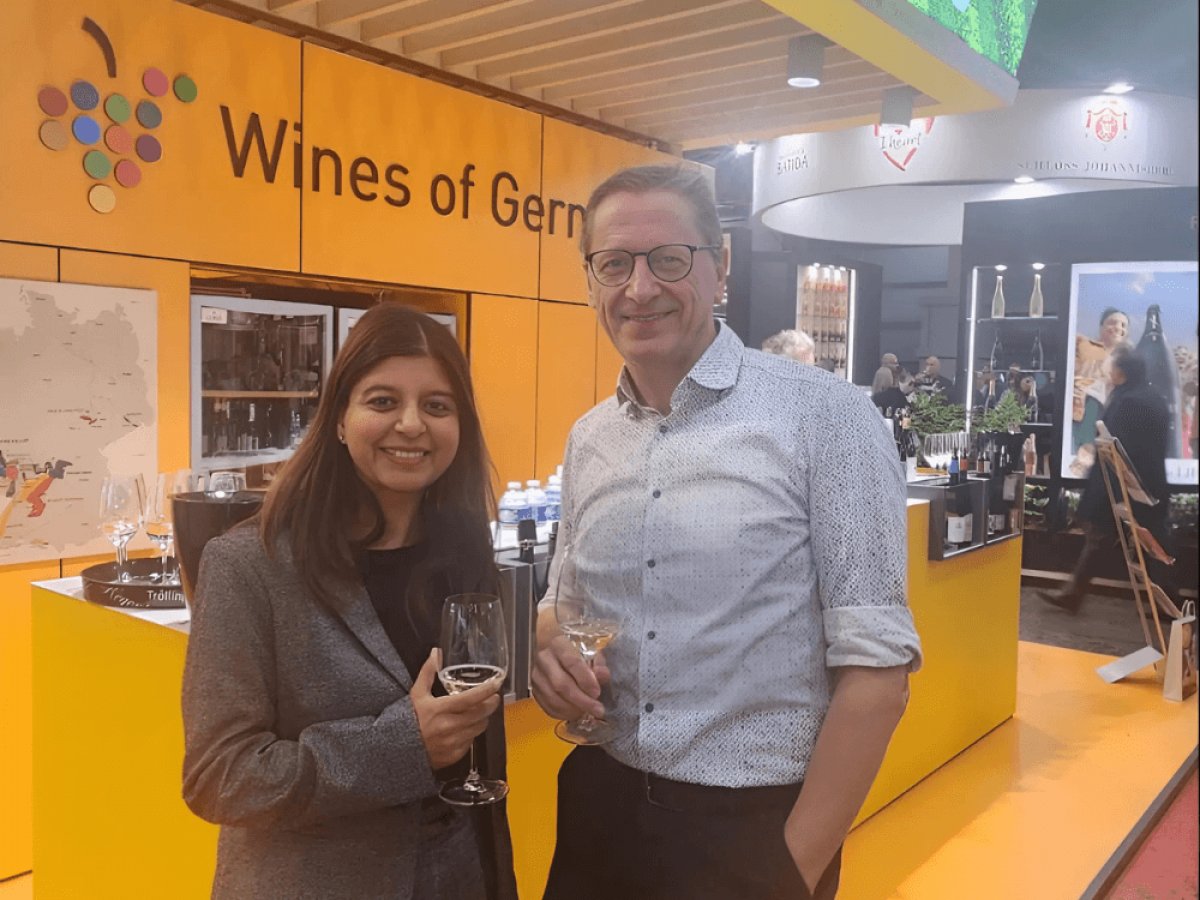
German wine has long been celebrated for its precision, balance, and sense of place. Yet, in an evolving global market where consumer preferences shift rapidly, staying relevant requires more than just quality—it demands fresh ideas and new ways of connecting with drinkers. Wines of Germany has embraced this challenge head-on, pioneering creative approaches to engage younger audiences, leverage cultural trends, and strengthen trade relationships.
In this conversation, Steffen Schindler, Marketing Director at Wines of Germany, shares how initiatives like Generation Riesling, trade partnerships, and sustainability efforts are helping reshape perceptions of German wine. From vibrant music festivals to innovative retail strategies, he offers valuable insights into how the global wine trade can work together to grow wine consumption in a meaningful and lasting way.
Steffen, how is Wines of Germany approaching the challenge of engaging with a younger, more diverse consumer base? Can you share some examples of campaigns or strategies that have worked well?
We have a program which started almost 18 years ago in the UK, because we had a problem in the UK, we were struggling on the market. German wine was seen as old-fashioned, sweet, and cheap, so not the best of images. And we did lots of activities there, and nothing really worked. And then we thought, let's try to bring over some young German winemakers. The problem is we have to be neutral from the German Wine Institute because everybody's a member of the German Wine Institute But we said, okay, let's be a little bit less neutral than usual. And we took 25 young German winemakers to the UK, to London, to do a wine tasting there. And we called it Generation Riesling. We didn't call it Generation German wine, because, as I said, German wine, the image was not great.
So we called it Generation Riesling, because Riesling has a very good image. It’s easy to pronounce, and not German wine. So we concentrated on that, founded that movement, and today we have 540 members of young winemakers. You are a young winemaker until the age of 35. We have a website for Generation Riesling, and we use that young movement a lot in our marketing. We do lots of events with young winemakers, B2B and B2C. We do tastings in Munich, in Berlin, in Hamburg, but also this year in Edinburgh, for example, in the UK, just to show that Germany is not old-fashioned at all. We have a very, very dynamic wine scene in this country.
And also we go to music festivals. Young people at music festivals usually have time on their hands. They don't listen to music all of the time. We are there with young winemakers, the same age as the guests. And it's a lot easier for them to connect. They listen to the same music, have the same way of dressing, of talking, about the same topics. And it's really amazing to see how people react because they don't believe that a winemaker can be 25 years old. Because some of them are students still. And here is somebody who is already owning a company, running a company with people.
That is our major strategy to reach the young trade, young gastronomy and also consumers. We as Wines of Germany don't produce wine. We can only promote what's there, what the producers produce, but we try to put forward younger wine styles.
We try to promote non-alcoholic wine because we think there is a lot of potential. Yes, definitely, there is a lot of potential non-alcoholic wine. We have great non-alcoholic wines. I just talked to a producer who told me that he has just had an order from Italy, which was bigger than his whole annual production. It's an annual sale of wine and non-alcoholic wine. And he was super happy. And there is a market out there we have to tap into, and we would be mad not to do so. We looked at the Raw Wine Fair, which was happening yesterday and today, here in Paris, which was about natural and orange wines, which is also something that younger people are picking. It really addresses a younger audience. They are very much into that. So if you want to talk to them, talking about natural wines is an option. So we're looking at how can communicate with the younger audience.
How is your association leveraging cultural trends, such as food pairings, art, or music, to enhance the appeal of wine?
The problem is we have had very big budget cuts in these years. So we have stopped almost all our B2C activities. That is by far, the most expensive of marketing activities. So we work more with the trade. We concentrate very much on the gatekeepers in the trade, gastronomy, and media.
We used to be the main sponsor of the Berlinale Film Festival, the International Film Festival in Berlin, for example. We were sponsoring some other film events in Germany and media events in Germany, like awards given to German films, German movies, and German TV shows. But all of that, everything has been stopped. Also in our foreign markets, we work in 11 foreign markets, and we have stopped all B2C activities in the Netherlands, and in the UK.
We also went to music festivals. In the United States, we went to food festivals, that's what. That's where it was a very good way to reach consumers and also a younger demographic. Now, we reach out to younger sommeliers. We have a program which is called Sommelier Summer School, where we bring in sommeliers from all over the world to Germany to travel through the vineyards, but also teaching sessions for a few days. And they come from all over the world. They love to meet each other. Peruvian sommeliers meeting sommeliers from Russia. This gives them a platform to meet others, and we know that many of them are still in contact with one another, and it was Wines of Germany that offered them the opportunity to meet. So that's really very good. But as I said, it's all condensed a little bit lately.
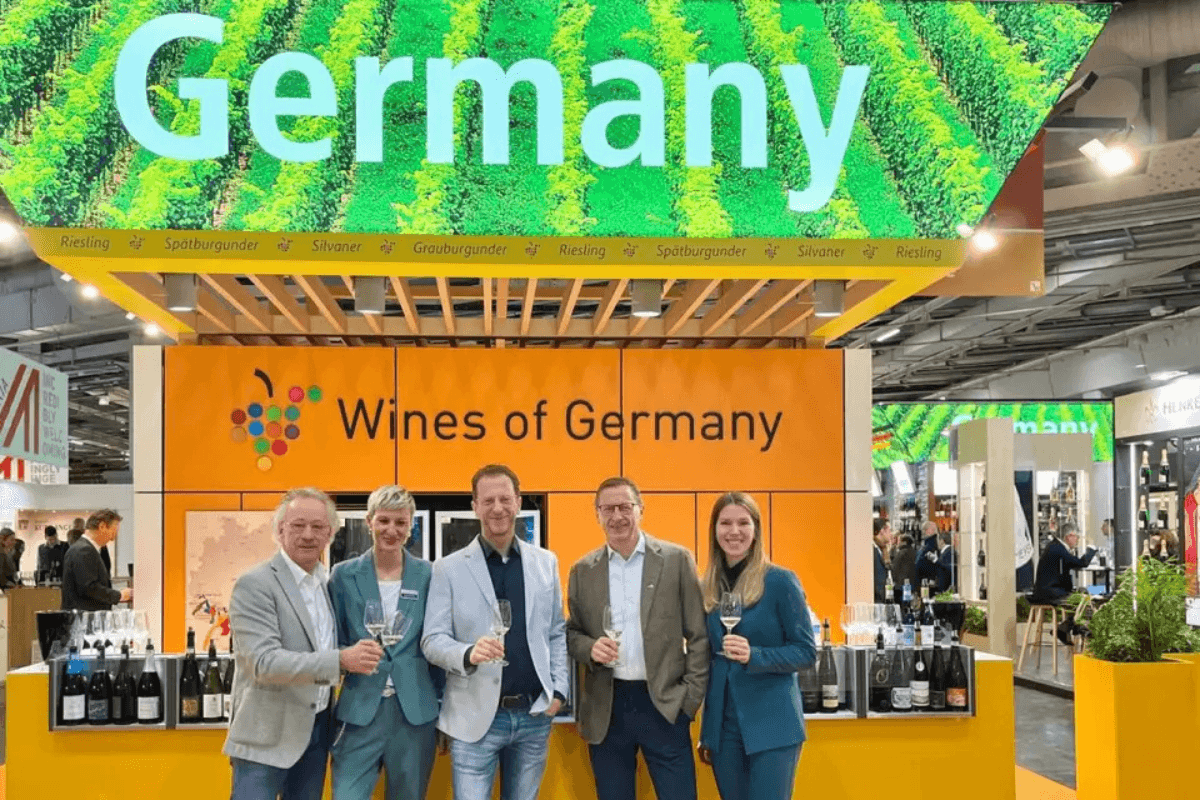
Image: (From Left to Right) vlnr Alain Jacobs(NL), Katharina Bloszyk, Michael Schemmel, Steffen Schindler, Julia Lambrich, Deutsche Weinprinzessin. Source - Wines of Germany.
How can trade partnerships and collaborations help increase wine awareness and accessibility? Can you share examples of how your association is planning to work with the trade in 2025?
What we do with the trade is that, of course, we go to trade fairs. That's where we try to reach them. We organize our own fairs only with German wines in all our 11 foreign markets, and inside of Germany as well, with Generation Reisling mainly in Germany. So that is the way we reach out to the trade we do gastronomy and trade weeks in all our foreign markets, which are called Riesling Weeks, or Summer of Riesling.
Malvika: Yes, that looks like a very fun campaign.
Steffen: Yeah, it is. It is because I have the impression that it's not that the people who work with us are not just doing it because they profit from it, but also because they just like it. They just like the idea of promoting German wine. It really has to be, if there's no fun behind it won't work.
We celebrate Riesling’s birthday in March. The 13th of March is the date when Riesling was mentioned for the first time, 600 years ago. And I had, somebody from France, from Bordeaux yesterday here. I told them about Riesling's birthday, and they said, Oh, that's a great idea. We're going to do that. We will do a tasting of German Riesling on the 13th of March!
So, we do that. We teach the trade we have about, we teach about 3000 people in the trade per year in Germany alone, on German wine and in foreign markets in addition. So that's how we how we work with the trade. And in Germany, we work a lot with supermarket chains. We do German wine promotions in Aldi, Lidl, Edeka, Rewe, and all the big department stores.
Do you see consumers actively seeking out sustainable wines, and how is your association meeting this demand?
Sustainability is a huge subject for three reasons. One reason is that the producers themselves are convinced that they should be sustainable. Many of them change not because the market demands it, but because they are convinced that they should be working that way. They've been had the many of our vineyards are 1000 years old. So they have always worked with this mindset of passing on their wine state to the next and the next generation. There was sustainability there anyway, all the time. And so there many of them do it really out of pure conviction.
Then they have the trade, and the trade demands it. if you want to send wine to the monopolies in Scandinavia, they're getting stricter and stricter all the time on sustainability.
Malvika: Scandinavia is the region that comes up a lot every time I ask wine associations or producers about sustainability. It sounds to me like Scandinavian consumers are the ones that are most aware and the most demanding of sustainable wines.
Steffen: It is also the consumer there, but it's a lot the organization as such. You know the difference is in Germany, you have lots of supermarket chains competing. So if one says we only want sustainable products that are more expensive, they have a disadvantage, a commercial disadvantage. In monopoly countries, there is no competition. They can dictate the price. So if they say we now want sustainable products, even if they are more expensive, that's just the way it is. Nobody is competing with them.
The third tier is the consumer as such, themselves. And I think you're right that the Scandinavian consumers are the ones who are looking into organic and or sustainable more than anybody else. When I go to Denmark, you go walk down the street. You have organic furniture shops, organic hairdressers, organic everything. So everywhere it's just amazing. You have restaurants that are sustainable, oand rganic. You can buy organic soap.
Malvika: You mentioned that German wineries have always been sustainable, and that's great, but if they have to present that to the outside world, you need the certifications. How is that coming through?
In Germany, I think our politics have made a big mistake because we don't have yet any kind of national logo or a national program for sustainability in viticulture. I think that's needed. So if you, if you want to prove to somebody that you are sustainable, yes, you have to go private. So there are private organizations in Germany, one of the most important ones is called Fair’N Green. I think they're approaching 200 members now. So you can become a member, and with them, together, you develop a program of sustainability. And what I really like about this is it's not that you do something, change something in your winery, and then you're now you're sustainable. Because they give you goals every year. So every year we get a new goal. Reduce water, reduce electricity, reduce whatever, and put in more diversity to your winery. It's a program for your winery based on what you have done so far. There's an analysis. And then every year you set a new goal. It's an ongoing process. So that's the biggest one, Fair’N Green, but there are a few others.
Are there specific trends, like low-alcohol or organic wines, that you see growing in response to health concerns, and how are you supporting producers in this area?
As you know, we have a huge crisis everywhere, and that's almost the only part of the wine business which is growing is non-alcoholic and sparkling wine. Wherever you look, and all the figures tell us that there is growth. We know that in Germany around 40% of people don't drink alcohol. So why should we not tap into that huge amount of people? Why should we let them drink Coca-Cola or non-alcoholic beer or water or tea or coffee if we have a fantastic product? And I personally think that the world needs non-alcoholic wine because people want to have an adult drink without alcohol If you are having a nice meal, everybody's drinking wine and you're pregnant, or you don't drink for religious reasons, what do you drink Coca Cola? Children's drinks? I think the only solution is non-alcoholic wine.
Non-alcoholic wine was invented in Germany in 1907, so more than 100 years ago. There was the first patent by a company called Carl Jung, they are still around. They still make non-alcoholic wine, and they are blossoming like never before. I'm sure they are expanding a lot. They were just here yesterday. And they are super happy. And we encourage producers. I am convinced that in 10 years every wine producer will have non-alcoholic wines in his portfolio. I'm absolutely convinced.
We have quite a few facilitties offering de-alchoholization services. And they're all expanding, they're all growing, they're all investing. And we in our marketing when we do events now, we always try to include non-alcoholic wine. Here at our tasting booth, our first wine is non-alcoholic sparkling. We have learned one thing when it comes to the taste, when you taste non-alcoholic wine or sparkling wines, and then you taste alcoholic ones, the alcoholic ones tend to taste very bitter. Okay, so our advice is start with alcoholic wines, and only at the end add non alcoholic wine.
[[relatedPurchasesItems-38]]
Conclusion:
Growing global wine consumption requires more than just great wine—it demands relevance, storytelling, and a willingness to adapt. Wines of Germany’s journey demonstrates how shifting perceptions takes time, experimentation, and a deep understanding of consumer behavior. From championing young winemakers through Generation Riesling to engaging gatekeepers in the trade, their strategy highlights the importance of meeting audiences where they are, whether that’s at a music festival or in a training program for young sommeliers.
The challenge now is sustaining momentum in a competitive landscape, where consumer preferences are evolving faster than ever. Whether through non-alcoholic offerings, new sustainability frameworks, or creative trade collaborations, Wines of Germany is working their way through each. For the broader wine industry, there’s much to learn from their approach—especially when it comes to making wine feel as exciting and relevant as any other cultural experience.
In conversation with Malvika Patel, Editor and VP, Beverage Trade Network
Also Read:
Riesling, Pinot, and Beyond: How German Wines Are Redefining Their Global Footprint
London Wine Competition to Exhibit at ProWein 2025 Germany – Meet the Team and Explore Winning Wines
Jesse Becker MS On How Sommeliers Can Grow German Wine Sales in Restaurants

